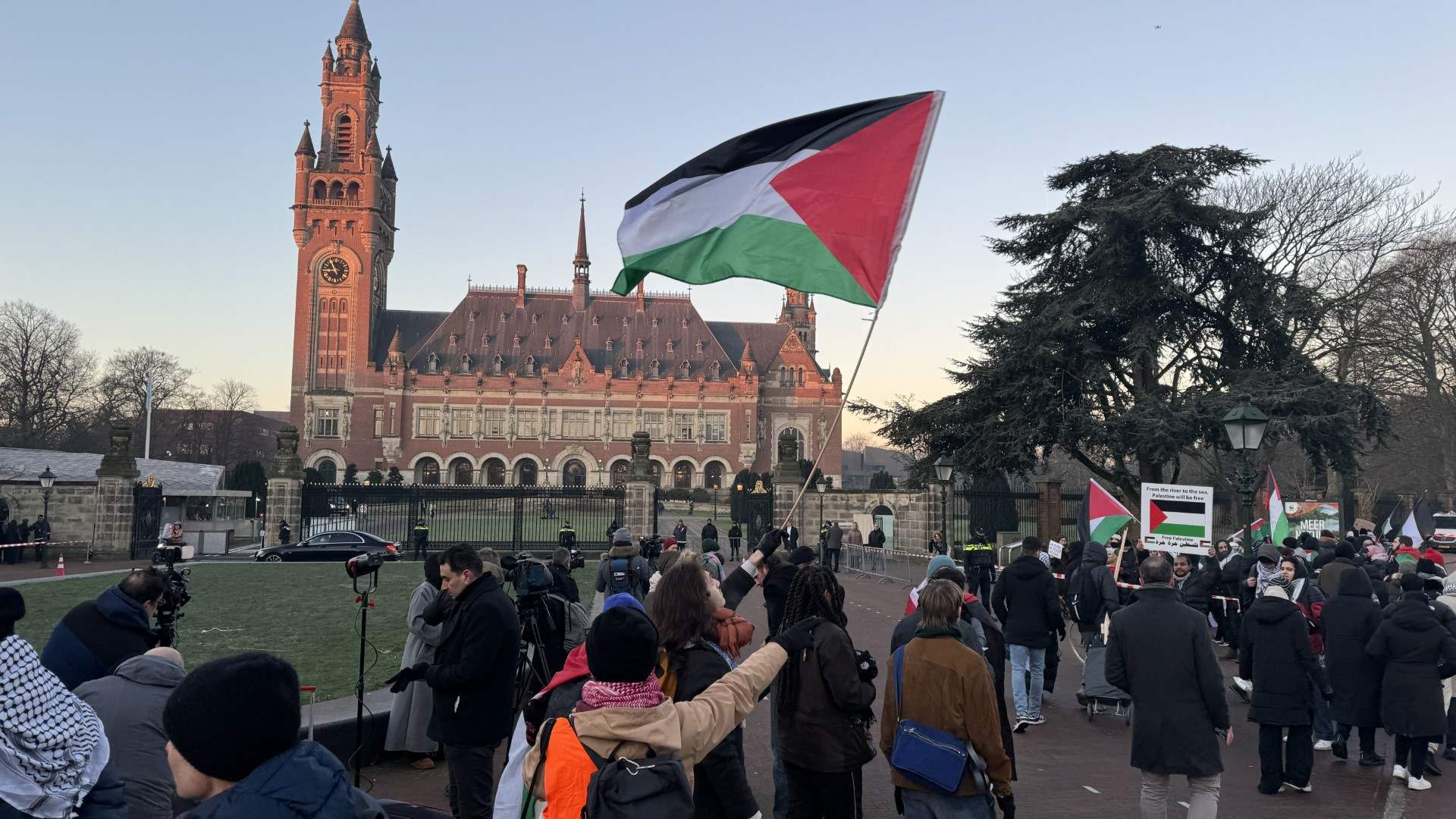The second day of public hearings at the world body in The Hague has concluded as both South Africa and Israeli occupation have presented their oral arguments in front of the International Court of Justice (ICJ) on January 11 and 12.
On January 11, South Africa began its oral arguments in a landmark case against Israel where it accused it of committing the internationally prohibited crime of genocide, in breach of the 1948 Genocide Convention – the same year as the nakba, where Palestinians were forcibly displaced from their homes and brutally killed with the establishment of the Zionist occupation.
Since October 7, the day of Operation Al-Aqsa Flood, more than 23,000 have been killed in Gaza, including 10,000 children. Israel has since then embarked in a war on Gaza with the intention of “destroying Hamas”, the armed resistance group responsible for October 7.
South Africa’s Arguments
The South African team was led by international law academic and barrister John Dugard, and during their three-hour long presentation, the team eloquently presented copious amounts of evidence that demonstrate the harsh conditions Palestinians in Gaza are having to endure under siege and heavy aerial bombardment, coupled with a deadly military ground invasion.
South Africa has presented a request for an emergency order that prevents further bloodshed and destruction in Gaza. Some experts say that an interim sentence could be released within a few weeks time, although it could take years for the ICJ to reach a final judgement in the case.
Adila Hassim, one of advocates representing South Africa, said that while it is not necessary that a final ruling emerge now, the court could include that some of Israel’s actions in Gaza violate the convention and call for an immediate intervention.
In her argument, Hassim adopted a five-pronged argument demonstrating how Israel had intention to commit genocide within Gaza.
The first genocidal act was the mass killings of Palestinians, demonstrated most evidently by the high death toll. Hassim presented pictures of mass graves, often identified, and stated that Israel had deployed highly destructive 2000-pound bombs in parts of Gaza it had declared safe for passage. As a result, entire families and bloodlines have been killed.
The second genocidal act was infliction of bodily mental harm. Nearly 60,000 people have been wounded and maimed in Gaza, and with the collapse of the health system, this has had disastrous consequences. Another argument Hassim pointed to was the mass detention of Palestinians, including children, after they were stripped down and loaded into trucks going to unknown locations.
The third genocidal act was forced displacement and food blockade. Hassim said that Israel had deliberately imposed conditions that cannot sustain life, including the forced displacement of families, particularly in northern Gaza. Israel’s siege on Gaza has also led to widespread hunger and has severely restricted the movement of aid workers, in addition to denying Palestinians the right to shelter, clothes, bedding and other critical non-food items.
The fourth genocidal act was the destruction of the healthcare system, demonstrated by Israel’s repeated attack on healthcare in Gaza for years preceding October 7. This is most clearly demonstrated by the attacks on hospitals and healthcare professionals.
The fifth and the final genocidal act is preventing Palestinian births. Israel is blocking life-saving treatment needed to deliver babies, forcing in many cases women to undergo unsafe births with the absence of anesthetic.
Israel’s arguments
On January 12, Israel took the floor to adamantly reject South Africa’s arguments, accusing the country of having close ties to Hamas. Legal representatives of the occupation claimed South Africa’s case was “unfounded”, “absurd”, and amounting to “libel.”
Israel’s arguments primarily relied on “its right to self-defence”, following October 7, and said that the evidence presented indicated no “genocidal intent.”
“The inevitable fatalities and human suffering of any conflict is not of itself a pattern of conduct that plausibly shows genocidal intent,” said Christopher Staker, a lawyer representing Israel.
Israel’s legal team insisted that its army has acted in compliance with international law in Gaza and aimed to mitigate civilian casualties, instead blaming Hamas on the high civilian death toll. This comes in spite of overwhelming evidence presented by South Africa to the contrary.
Omri Sender, one of the legal representatives, had gone so far as to suggest that Israel had instead facilitated the entry of aid and its distribution into Gaza. During the temporary ceasefire in November, Palestinians living in Gaza had taken to social media to express how Israeli occupation forces were preventing the entry of aid into the north of the strip, and were instead violating the terms of the ceasefire by firing at passersby.
Another member of the legal team, Galit Raguan, said that Israel had found evidence that Hamas was using “every single hospital in Gaza for military purposes”, despite international organizations and media agencies finding no credible evidence to back these claims up. Hamas has openly opposed these allegations.
In an interview with Al Jazeera, Thomas MacManus, senior lecturer in state crime at Queen Mary University of London, said that the ICJ is likely to see “a massive disconnect” between the picture Israel pained of its humanitarian concern for Gaza and “the reality on the ground where UN agencies say people are starving, lacking water, and seeing attacks on hospitals, schools and univerisitities”.”
The ICJ is set to rule on nine provisional measures effectively seeking the suspension of military operaitons in Gaza, although it has not specified when it would be doing so.
With regards to jurisdiction, Israel argued that one of the requirements of the ICJ’s mandate is that the state putting forward the case should try to sort out this problem first. South Africa argued it had reached out to Israel but obtained no response, and Israel has stated that it did not manage to talk to South Africa before the issue was brought to the ICJ.


